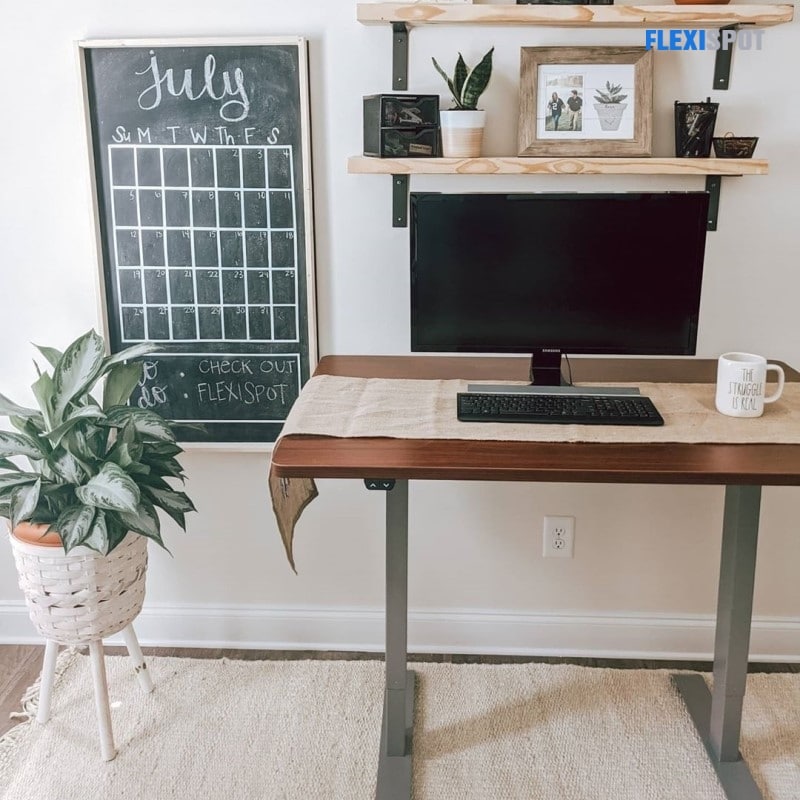Staying productive throughout the summer, especially regarding future school duties, can be difficult. You've got all this time off from schoolwork and class, so it only seems fair to spend it sleeping and watching TV, right? If you've fallen into a loop of sluggishness, it's never too late to reclaim your productivity.
Students frequently find it challenging to manage their time efficiently due to various stressors, distractions, and the overwhelming quantity of work they have to accomplish in a given period. It's unsettling to think about the projects they have forthcoming and the number of tests they have to prepare for in a matter of days. Productivity is defined as accomplishing the tasks at hand and doing it well and learning at the time. Regardless of how hard you try to avoid reality when you aren't feeling up for it, you will have to face it one way or another.
Students may do a few basic things in their daily lives to ensure they remain productive while staying or even studying at home. Consider these suggestions if you'd rather be able to study well throughout the day and you'll have some free hours to yourself in the evening.
Come Up With Daily Schedules
Preparing your thoughts for the day and managing things more systematically might help you handle your days more successfully. Make a list of everything you intend to do on a whiteboard, in a notebook, or on an app. As you go about your day, gradually begin marking off what you have successfully finished. Try to put tasks in chronological sequence so that you may prioritize them. This allows you to start with the most challenging ones and work your way down. Make your list a little ambitious so that your mind is unconsciously primed to train itself to handle a large workload. That way, you'll feel good about what you've accomplished by pushing yourself a bit more.
Establish a Distraction-Free Study Space
The answer to studying from home is to establish a location within your household that provides some of the perks of a classroom or library while removing as many distractions as possible. It would help if you had a spot where you can concentrate without being sidetracked by a bed, TV, or other tempting stuff. Some students have accomplished this by establishing a study place on their dining room or kitchen room table. Others have set up a workstation in the hallway to keep them from going to their room and lying in bed. You can create a relaxing study environment with color, light, and even fun items like bean bag chairs or stress balls for when you need a break. You can also level up those breaks or even while studying and listening to class online by building your standing desk using books or cardboard boxes to make it seamless to switch between sitting and standing periodically. Getting up once in a while to stand and move around or shake those limbs can get students back in the zone and refocus on the tasks needed to be finished.
Track Your Time
Keeping track of your hours is a critical step toward improved time management. Begin by splitting big tasks into smaller discrete tasks. Each task should be allotted a specific amount of time to allow for revisions and research. Set aside time for each assignment and keep track of when you start and finish the job. To ensure that you stick to the plan, you may use time monitoring software or just a clock on the wall. Clock out and record your hours every time you need a breather.
Acknowledge Your Limit
It's pointless to push oneself to extremes when tension is more prevalent and furious tantrums are more likely. Everyone has a limit that should not be surpassed. Lack of sleep comes full circle with you, such as the next day in class when you fight to remain awake and can't focus. It's virtually hard to win the struggle against sleep and mental fogginess, and working while woozy will never help you get the scores you want. Pushing yourself past your limitations will only lower your productivity, so listen to your body when it tells you it's time to call it a day and rest.
Take Regular Breaks
We will only suffer more tension and exhaustion if we strain our minds beyond their capabilities. Frequent breaks will assist in combating this development of stress and increasing student performance. You may be accustomed to long workdays with only one lunch hour as a seasoned professional. The notion of regular short breaks will be reintroduced into adult learning. Find a routine that works for you, whether it's 5 minutes every hour or 30 minutes a couple of times a day. Everyone has a different preferred study schedule, but the essential thing is to adhere to your choices. Use these periods to recharge your batteries and boost your productivity.
Work Out
The body and mind are inextricably linked, and when one struggles, the other usually does as well. Move away for a moment from studying or working and instead put your body through the rigors to de-stagnate your brain. You may be hurting by the end of the day, but you will have gotten over a considerable amount of the mental tension out of your system, allowing you to regroup when you return to the tasks at hand. You might also include advancements such as under-desk bikes or treadmill workstations, which enable you to work and exercise simultaneously. Try to convince your parents to purchase one since ergonomic developments like under-desk bikes and standing desks are suitable for everyone's health, especially those working and studying age groups.
Get an under-desk bike with your standing desk here!
Set Chores Aside
One of the most frustrating things that can happen is for a student to be working in the zone and then be interrupted by their parents telling them to do the laundry, dishes, etc. Taking unexpected pauses to accomplish something else during your study time might seriously disrupt your attention. It isn't easy to go back into the zone after you've been yanked out of it. If you know you need to handle some housework in addition to your schoolwork, aim to complete the tasks before or after your study period. This way, you won't be continually anxious about fulfilling them, and you'll be less likely to get sidetracked when studying.
Walk Between Work Intervals
Standing up and going for a short walk keeps you from sitting in one place all day, and it keeps your body healthy and active. It enables you to remove your productivity cap from the computer and all of its distractions and concentrate on the mental element of what has to happen next when you return to your desk. With the help of a standing desk, you can even take that walk around your study desk when you need to stretch out. Under-desk bikes will also assist you in taking strides behind or away from your desk.
Eat Healthily and Get Enough Sleep
As students, we put a lot of strain on our bodies, and a simple answer is to incorporate more healthy meals into our diet. This will keep your energy levels up and your studies more effective. Student productivity is dependent on a strong immune system and good health. A minimum of 8 hours of sleep is required for normal cognitive function. According to research, students may need even more. To boost your effectiveness and productivity, make it a habit to unwind at the end of every day and go to bed calmly. Exercise or mindfulness can help you tire out your body and calm your mind. Because stress is a significant cause of sleep deprivation, your priority should be to look after yourself.
Reward Yourself
Rewarding oneself for a job well done may appear to be counterproductive. When everything is work and no fun, your head gets choked. When you first start studying, you have a lot of energy and believe you can do a lot in a short period. As the day progresses, the battery gets depleted. Giving oneself a mental reward is like plugging your phone back in when it reaches that critical point. You could even earn yourself physical treats, such as purchasing a premium app, going out for coffee and cake, or seeing a buddy for dinner. Spending money on yourself after a job well done helps you feel good about what you've just achieved and motivated you to do more.
Productivity varies from person to person due to the various methods we all create. It is not about working all day and feeling overwhelmed; it is about being pleased with what you have accomplished. Productivity is all about striking a balance that allows you to retain your sanity while effectively doing your tasks.

